|
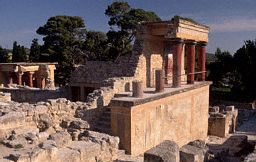
 The
early Olympic Games (from 776 B.C. until 393 A.D.) were celebrated
as a religious festival honoring the Greek god Zeus. The games
were eventually banned in ancient Greece for being a pagan
festival and the Olympic tradition died temporarily at that
point. However, a French educator named Baron Pierre de Coubertin,
decided that he wanted to start a program that would teach
people to balance the development of both their minds and
their bodies. The
early Olympic Games (from 776 B.C. until 393 A.D.) were celebrated
as a religious festival honoring the Greek god Zeus. The games
were eventually banned in ancient Greece for being a pagan
festival and the Olympic tradition died temporarily at that
point. However, a French educator named Baron Pierre de Coubertin,
decided that he wanted to start a program that would teach
people to balance the development of both their minds and
their bodies.
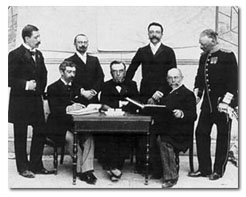 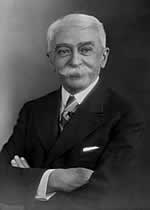
 In
1892 he brought his idea in front of the Union des Sport Athletiques
in Paris and proposed a revival of the ancient tradition.
Thus the modern-day Olympic Summer Games were born. Pierre
de Coubertin created a sports congress to help him plan the
Games and it included representatives from the United States,
Russia, Belgium, France, Britain, Greece, Italy, Spain and
Sweden. In
1892 he brought his idea in front of the Union des Sport Athletiques
in Paris and proposed a revival of the ancient tradition.
Thus the modern-day Olympic Summer Games were born. Pierre
de Coubertin created a sports congress to help him plan the
Games and it included representatives from the United States,
Russia, Belgium, France, Britain, Greece, Italy, Spain and
Sweden.
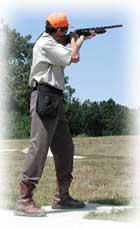 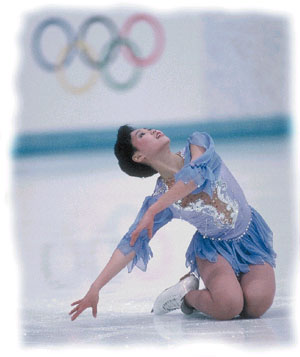  Pierre
de Coubertin originally wanted the event to take place in
France but he was convinced by the countries participating
in the council to hold the first Modern Olympics in Greece
because that was where the tradition started. After that the
Olympics would move to a different city every four years.
The first modern Olympic Games took place in 1896 with athletes
competing in nine sports events: cycling, fencing, gymnastics,
lawn tennis, shooting, swimming, track and field, weight lifting,
and wrestling. The Games were successful and in 1924 a Winter
Olympics was added to the schedule. It was to take place in
a separate, colder, location in the same year as the summer
events. In 2000,the Sydney Games were the largest ever, with
a record of more than 197 nations competing. Pierre
de Coubertin originally wanted the event to take place in
France but he was convinced by the countries participating
in the council to hold the first Modern Olympics in Greece
because that was where the tradition started. After that the
Olympics would move to a different city every four years.
The first modern Olympic Games took place in 1896 with athletes
competing in nine sports events: cycling, fencing, gymnastics,
lawn tennis, shooting, swimming, track and field, weight lifting,
and wrestling. The Games were successful and in 1924 a Winter
Olympics was added to the schedule. It was to take place in
a separate, colder, location in the same year as the summer
events. In 2000,the Sydney Games were the largest ever, with
a record of more than 197 nations competing.
|